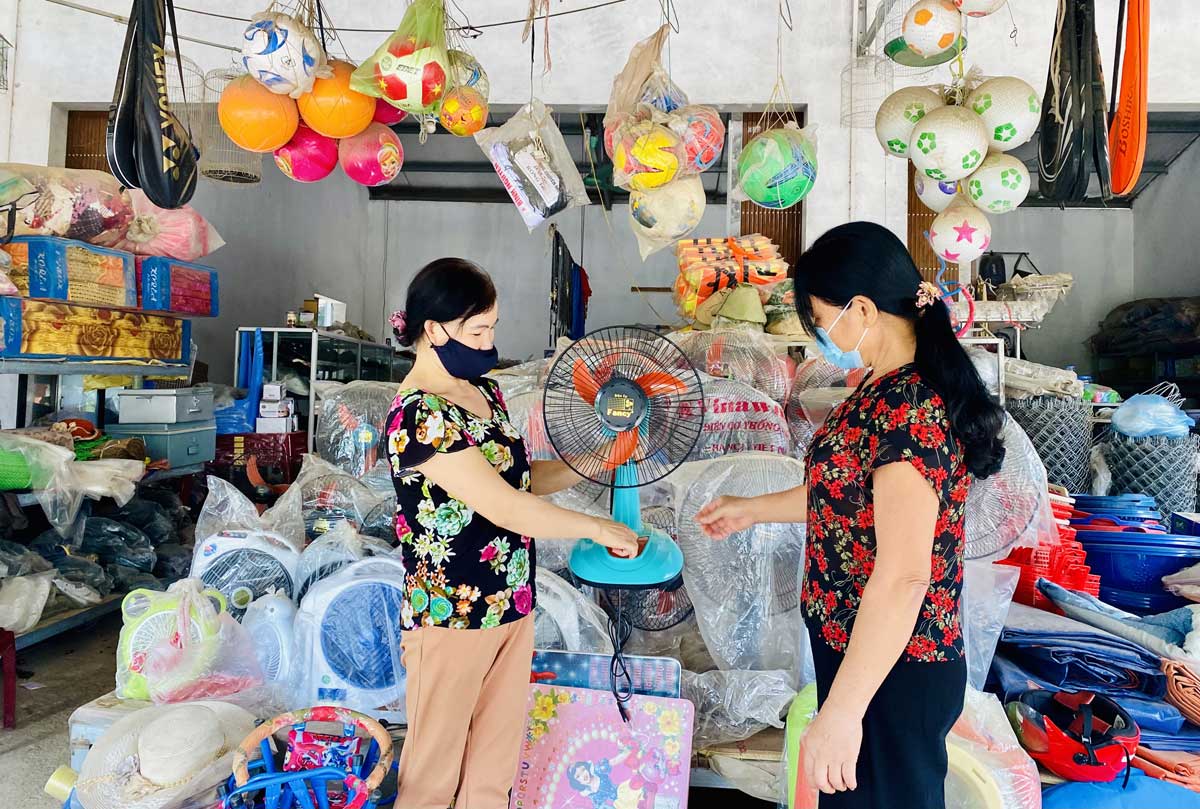
(HBO) - The economic structure of Tan Lac district’s Phong Phu is shifting in a positive direction in line with the orientation set by the district People's Committee. In 2020, the trade and service sector accounted for 50.58 percent of the local economy and its production value hit 279.168 billion VND (12.14 million USD). The figures for agro-forestry-fishery were 39.88 percent and 197.658 billion VND, and industry-handicraft 9.54 percent and 22.44 billion VND.

The trade and service
sector has contributed to raising incomes for people in Phong Phu’s Muong Lo
hamlet.
Phong Phu has various advantages for trade and service
development. The Highway 6 runs through its center, making it convenient for
trade and goods transportation. The local Lo market is the trading center of
Trung Hoa, Nhan My, and Quyet Chien communes. Phong Phu also houses a
community-based tourism site in Luy Ai hamlet, which attracts domestic and
international visitors.
Official statistics show that the commune has some 600 – 700
household businesses, mostly selling consumer goods, agricultural supplies, and
construction materials. It also houses three enterprises, one cooperative, and
15 industry-handicraft production facilities. The local trade and services
sector has grown quickly in both scale and quality, helping form civilized and
modern buying and selling habits among rural residents. On a monthly basis, a
household business offering services reels in an average income of 20 – 25
million VND (870-1,087 USD).
Cao Ba Chinh, Chairman of the Phong Phu People’s Committee,
said to boost trade and service, the local authorities have mobilised resources
to invest in improving the commune’s infrastructure, including roads between
Phong Phu and neighbouring localities and the Lo market. Facilitating business
activities, ensuring security and order, encouraging the participation in
campaigns promoting the consumption of made-in-Vietnam products, and actively
expanding distribution markets for local goods are also necessary, he added.
Phong Phu is striving to become a town by 2024, Chinh affirmed,
stressing that turning trade and service into a spearheaded sector of the
commune is key to realising such goal.
According to data from the Hoa Binh Provincial Party Committee, the industrial production index for the first six months of 2025 is estimated to have increased by 20% compared to the same period last year. This marks the highest year-on-year growth rate for this period since 2020.
In the first six months of 2025, Hoa Binh province’s export turnover was estimated at 1.145 billion USD, marking an 18.11% increase compared to the same period in 2024. Import turnover was estimated at $ 804 million, a 17.15% increase, which helped the province maintain a positive trade balance.
The lives of the ethnic minority farmers in Tan Lac district have gradually improved thanks to the new directions in agricultural production. This is a testament to the collective strength fostered through the professional associations and groups implemented by various levels of the district’s Farmers’ Union.
With the motto the "product quality comes first,” after nearly one year of establishment and operation, Muong village’s Clean Food Agricultural and Commercial Cooperative, located in Cau Hamlet, Hung Son Commune (Kim Boi district), has launched reputable, high-quality agricultural products to the market that are well-received by consumers. The products such as Muong village’s pork sausage, salt-cured chicken, and salt-cured pork hocks have gradually carved out a place in the market and they are on the path to obtaining the OCOP certification.
In the past, the phrase "bumper harvest, rock-bottom prices" was a familiar refrain for Vietnamese farmers engaged in fragmented, small-scale agriculture. But today, a new spirit is emerging across rural areas of Hoa Binh province - one of collaboration, organisation, and collective economic models that provide a stable foundation for production.
Maintaining growing area codes and packing facility codes in accordance with regulations is a mandatory requirement for agricultural products to be eligible for export. Recently, the Department of Agriculture and Environment of Hoa Binh province has intensified technical supervision of designated farming areas and packing facilities to safeguard the "green passport" that enables its products to access international markets.



